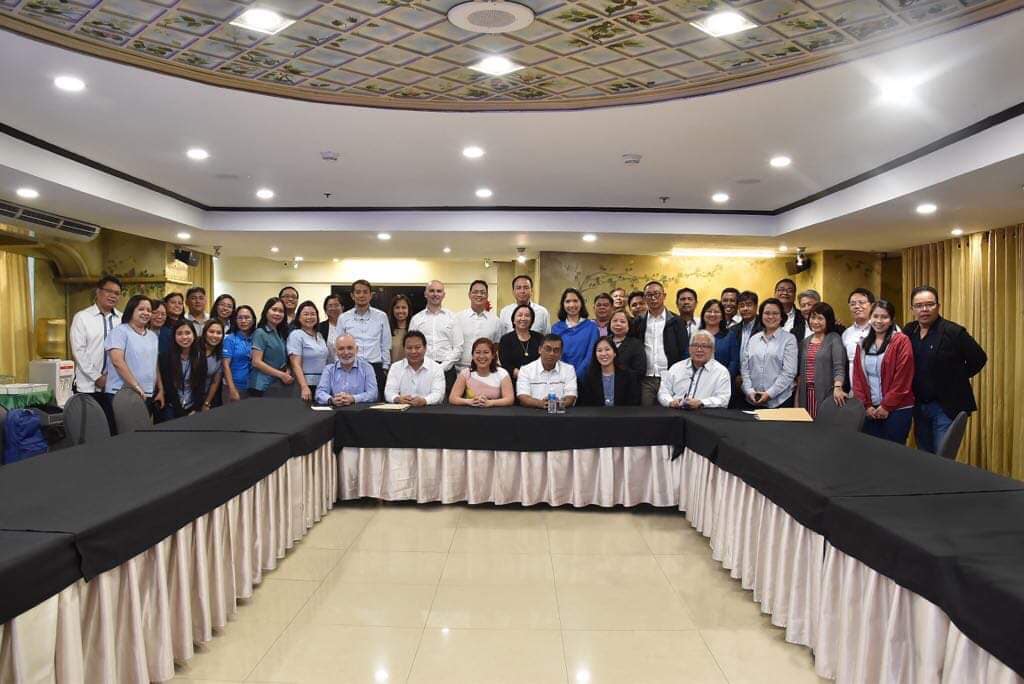
Officials of the Department of Public Works and Highways (DPWH) met with representatives of development partner World Bank to discuss new financial and technical assistance to ensure the resilience of critical infrastructure and government buildings in earthquake high-hazard zones.
DPWH Secretary Mark A. Villar together with DPWH Undersecretary Emil K. Sadain of the Unified Project Management Office (UPMO) Operations and Technical Services held series of consultative meetings with the World Bank group headed by team leader Ms. Artessa Saldivar-Sali for knowledge sharing and discussions on supporting investments to DPWH seismic reduction and resiliency program.
The meetings held on August 19, 20 and 22, 2019 were also attended by Senior Undersecretary Rafael C. Yabut; Undersecretary Dimas S. Soguilon; Assistant Secretaries Eugenio R. Pipo, Jr., Antonio V. Molano Jr., and Maximo Carvajal; OIC Assistant Secretary Marichu Palafox; Regional and Bureau Directors and Project Directors; and representatives from support agencies.
Department of Science and Technology (DOST) Undersecretary and Philippine Institute of Volcanology and Seismology (PHIVOLCS) Chief Renato U. Solidum, Jr. gave a presentation about impact scenario and the social, economic and other aspects of risk assessment, and tools and methods that would be useful in planning program activities.
DPWH Undersecretary Sadain highlighted at the meeting sessions the need to work together in dealing with earthquake risk and the importance of preparedness that could mean the difference between life and death, and between property damage or catastrophic loss.
Undersecretary Sadain said that in facing the Mega Manila’s vulnerability to large scale earthquake that could be generated by the impending movement of the West Valley Fault known as ‘The Big One’, DPWH came up with an integrated department approach in addressing earthquake resiliency problems with Secretary Villar creating an Earthquake Resiliency Program Management Office (ER-PMO) through the issuance of Department Order No. 75 on July 10, 2019.
The DPWH Order No. 75 is in pursuant to Executive Order No. 52 dated May 8, 2018 enjoining all government agencies to ensure that mitigating measures as well as interventions for the resiliency of Metro Manila are given utmost priority.
With DPWH undertaking inspection and assessment of the structural conditions of public facilities and infrastructures in Metro Manila and realizing the need for much more planning and funding of the seismic strengthening and upgrading activities, the Department will particularly need the World Bank technical assistance and expertise in package preparation of priority investments to support risk reduction in schools, hospital, government buildings; improvement of emergency preparedness and response capacity; strengthening the enforcement of building regulations and standards; and technical and organizational capacity building for the long-term implementation of an earthquake resilience program.
As an institution known for its generous assistance to the Philippines through the years, World Bank is keen to support the government program for earthquake resiliency particularly in the Greater Metro Manila Area as it earlier provided technical assistance to DPWH on integrating disaster risk reduction and climate change adaptation measures in the building regulatory framework or the National Building Code of the Philippines, which has resulted in the development of a proposed Philippine Building Act filed in the legislature for enactment into law.
Meanwhile, the DPWH ER-PMO headed by Secretary Villar and Undersecretary Sadain as alternate head, will take the important step to formulate and operationalize the DPWH earthquake resiliency and response plan; align the programs and strategies with the OPLAN YAKAL PLUS; and develop and institutionalize the earthquake contingency and continuity plan.
The DPWH ER-PMO with the Directors of Bureau of Maintenance and Unified Project Management Offices (UPMO) as Deputy for Operations and Support, respectively, will also be responsible in undertaking all necessary actions to fast track the implementation of urgently needed interventions to ensure resilient infrastructures; ensure that Vulnerability and Risk Assessment of all critical infrastructures are undertaken; ensure that the Key Result Areas as contained in EO 52 on Transport and Mobility is updated and monitored.
A technical steering committee composed of the Directors of the DPWH Bureaus, Stakeholders Relations Service, and UPMO Project Directors was also formed to collect and review situational reports, oversee the accomplishment of regional operations, and create policy decisions while a separate support services committee was tasked to formulate long and medium-term resiliency development plans and ensure funding source for the whole program.
Three (3) Regional Operations Group headed by the Undersecretaries for Regional Operations are tasked to operationalize the DPWH Earthquake Resiliency and Response Plan, implement and institutionalize the Earthquake Contingency and Continuity Plan, strictly monitor and fast track the implementation of urgently needed interventions, and conduct Vulnerability and Risk Assessment of vital infrastructure.
To assist DPWH ER-PMO, several agencies were identified to serve as support agencies, namely: National Economic and Development Authority (NEDA); Department of Finance (DOF); Department of Budget and Management (DBM); Department of Interior and Local Government (DILG); Department of Social Welfare and Development (DSWD); National Disaster Risk Reduction Management Council (NDRRMC); DOST-PHIVOLCS; and Department of Environment and Natural Resources - Mines and Geosciences Bureau (DENR-MGB).
